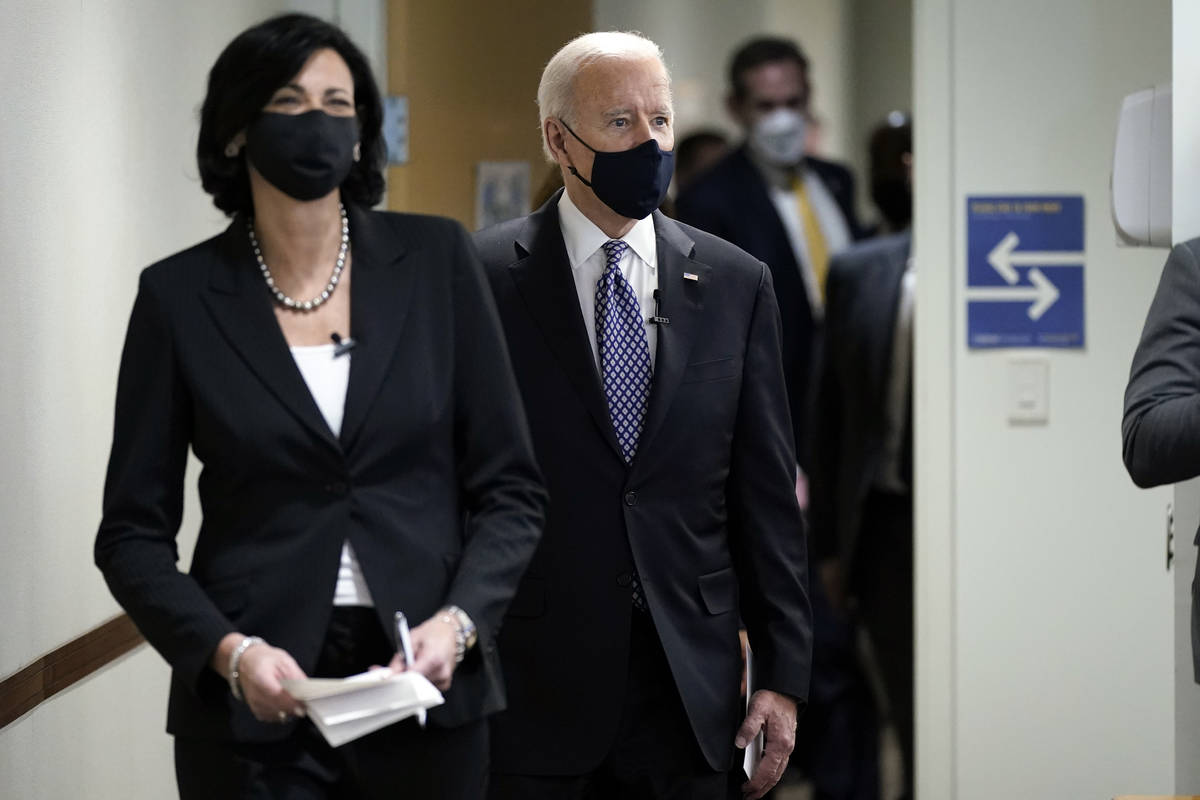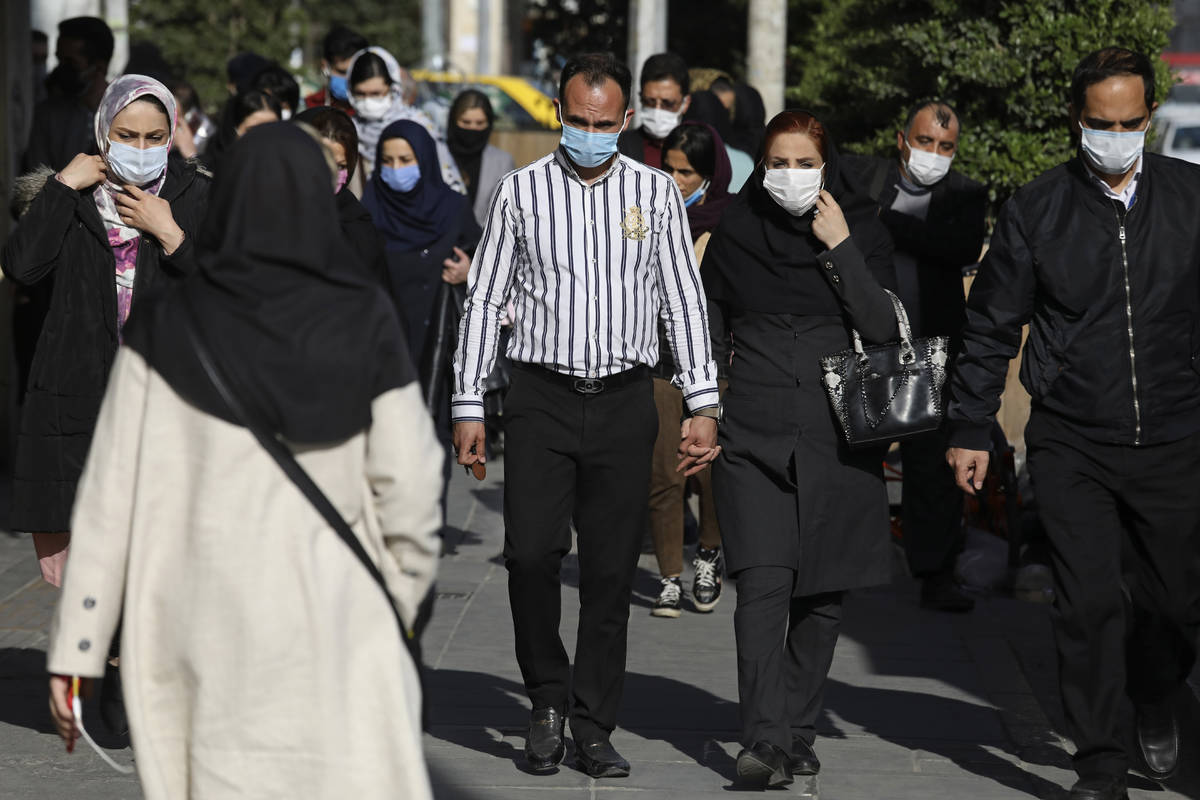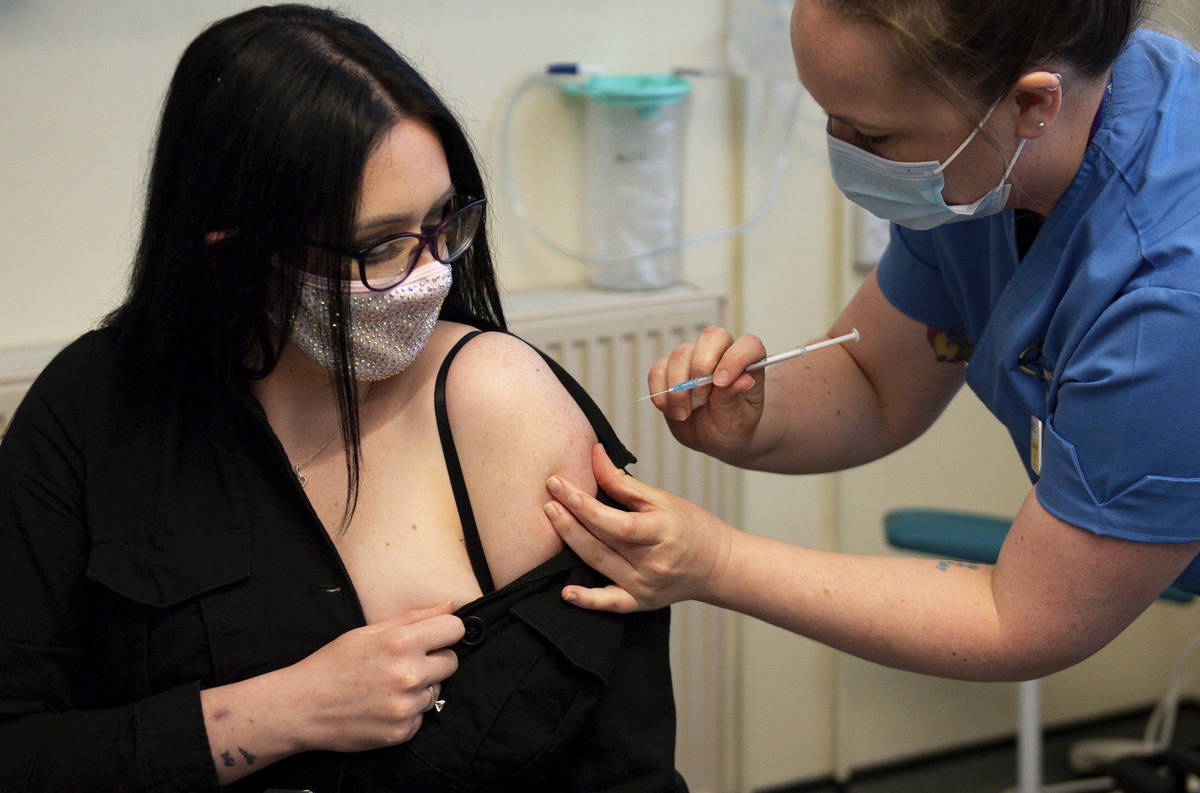Variant found in Britain most common in US, says CDC
WASHINGTON — A variant of the coronavirus first identified in Britain is now the most common strain of coronavirus circulating in the United States.
The director of the Centers for Disease Control and Prevention, Dr. Rachelle Walensky, says the strain, formally known as B.1.1.7, is “now the most common lineage circulating in United States.”
The strain has been shown to be more transmissible and infectious among younger Americans, which Walensky says contributed to rising case counts in recent weeks.
Walensky says new outbreaks have been tied to youth sports and day care centers. She particularly encouraged states with rising caseloads to curtail or suspend youth sport activities to slow the spread of the virus.
The U.S. leads the world with 30.8 million confirmed cases and more than 556,000 confirmed deaths.
34% of US students in classrooms
Large numbers of U.S. students are not returning to the classroom even as more schools reopen for full-time, in-person learning, according to a survey released Wednesday by the Biden administration.
The findings reflect a nation that has been locked in debate over the safety of reopening schools during the coronavirus pandemic. Even as national COVID-19 rates continued to ebb, key measures around reopening schools barely budged.
Nearly 46% of public schools offered five days a week of in-person to all students in February, according to the survey, but just 34% of students were learning full-time in the classroom. The gap was most pronounced among older K-12 students, with just 29% of eighth graders getting five days a week of learning at school.
There were early signs of a shift, however, with more eighth grade students moving from fully remote to hybrid learning.
With the new findings, came no closer to meeting his goal of having most elementary schools open five days a week in his first 100 days.
Possible link between clots, AstraZeneca vaccine
The European Union’s drug regulator says it has found a “possible link” between the AstraZeneca coronavirus vaccine and a rare clotting disorder but says the benefits of the shot still outweigh risks.
In a statement released Wednesday, the European Medicines Agency placed no new restrictions on using the vaccine in people 18 and over.
The EMA says most of the cases reported have occurred in women under 60 within two weeks of vaccination. The agency says based on the currently available evidence, it was not able to identify specific risk factors.
Experts reviewed several dozen cases that came mainly from Europe and the United Kingdom, where around 25 million people have received the AstraZeneca vaccine.
The EMA, the World Health Organization and numerous other health authorities have repeatedly stated the AstraZeneca vaccine is safe and effective and the protection it offers against COVID-19 outweighs the small risks of rare blood clots.
Surge in Iran
Iran shattered its daily record for new coronavirus infections for the second consecutive day, with 20,954 cases reported.
The record Wednesday comes as the country is in one of the most severe surges of the coronavirus to date. It follows a two-week public holiday for Nowruz, the Persian New Year, when millions traveled to vacation spots across the country and congregated in homes in defiance of government health guidelines.
For months, Iran has struggled to curb the worst outbreak of the coronavirus in the Middle East. The case count Wednesday brought the total number of infected to 1.98 million, according to official figures. Iran Health Ministry spokeswoman Sima Sadat Lari says another 193 people had died in the past 24 hours, raising the confirmed death toll to 63,699.
The country’s vaccine rollout lags, with only some 200,000 vaccine doses administered in the nation of 84 million, according to the World Health Organization. COVAX delivered its vaccine first shipment to Iran on Monday from the Netherlands, containing 700,000 AstraZeneca vaccine doses.
Tehran, the capital, and 250 cities and towns are declared “red zones,” which have the most severe restrictions in place and the highest virus positivity rate. Over 85% of the country now has the “red” or “orange” infection status, authorities say.
Ukraine cases, deaths increase
Coronavirus hospitalizations and deaths in Ukraine hit a new record on Wednesday. According to health authorities, 481 people died over the past 24 hours and 5,587 were hospitalized.
Infections and deaths have been spiking in Ukraine for several months, putting a severe strain on the country’s teetering health care system.
“The situation, without overstating it, can be called critical,” says Kyiv Mayor Vitali Klitschko, who added hospitals will soon reach at capacity.
On Monday, the Kyiv authorities have imposed tighter lockdown restrictions, shutting down schools and kindergartens and restricting the use of public transport.
So far only 320,000 people have received their first vaccinations due to widespread reluctance. On Tuesday, President Volodymyr Zelenskyy announced a deal to buy 10 million doses of the Pfizer vaccine, which are expected to be delivered by the end of the year.
A nation of 41 million, Ukraine has reported more than 1.7 million confirmed coronavirus cases and 35,498 deaths.
Germany ponders short, uniform lockdown
A spokeswoman for German Chancellor Angela Merkel is supporting calls for a “short, uniform lockdown” as the country grapples with a rise in coronavirus cases.
German state governors, who are responsible for imposing and lifting restrictions, have taken differing approaches. Some back limited reopening steps and others advocate a stricter shutdown. Armin Laschet, a governor who also leads Merkel’s party, is calling for a 2-3 week “bridge lockdown” to control infections while vaccinations are ramped up.
Merkel spokeswoman Ulrike Demmer says, “every call for a short, uniform lockdown is right.” She says numbers of new cases aren’t particularly good, and a rise in the number of occupied intensive care beds “speaks a very clear language.”
Laschet also called for the next meeting between Merkel and governors to coordinate restrictions to be moved up from next Monday but has hit resistance from his colleagues.
Olympic torch route to avoid Osaka
The Tokyo Olympic torch relay will not run through the streets of Osaka prefecture next week because of rising coronavirus cases.
The move is a setback for the Tokyo organizers who began the relay two weeks ago from northeastern Fukushima prefecture with 10,000 runners planning to crisscross Japan over the course of four months. Organizers say runners and the torch will be involved in some event in an Osaka city park on April 13-14, the days the relay was to cross the entire prefecture.
Osaka reported 719 new coronavirus cases Tuesday. About 70% of hospital beds available in Osaka have already been occupied, officials say.
The postponed Tokyo Olympics is scheduled to begin July 23.

































